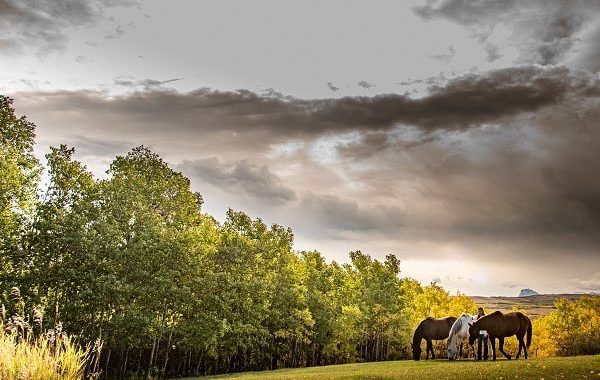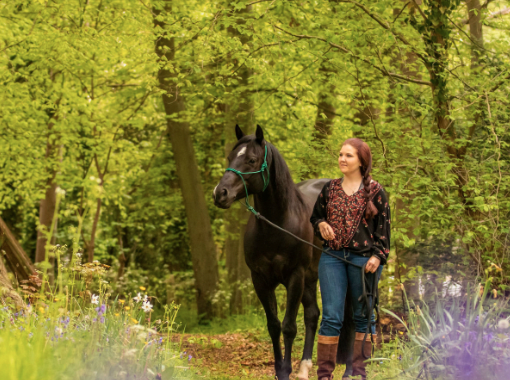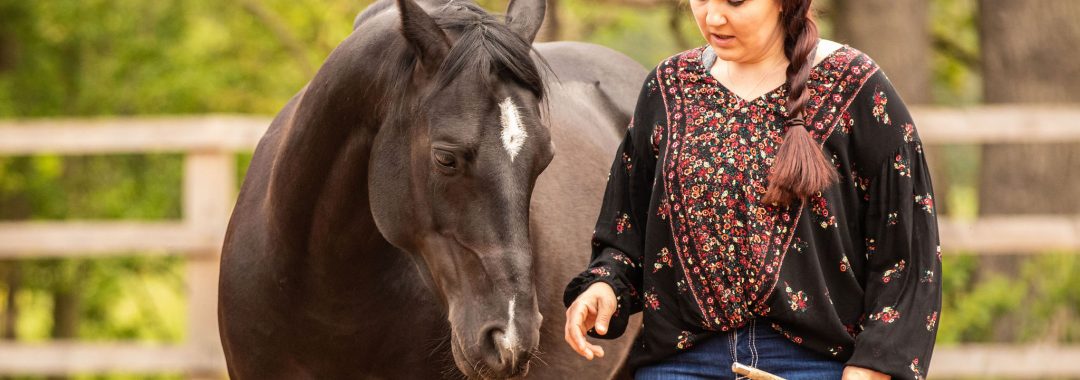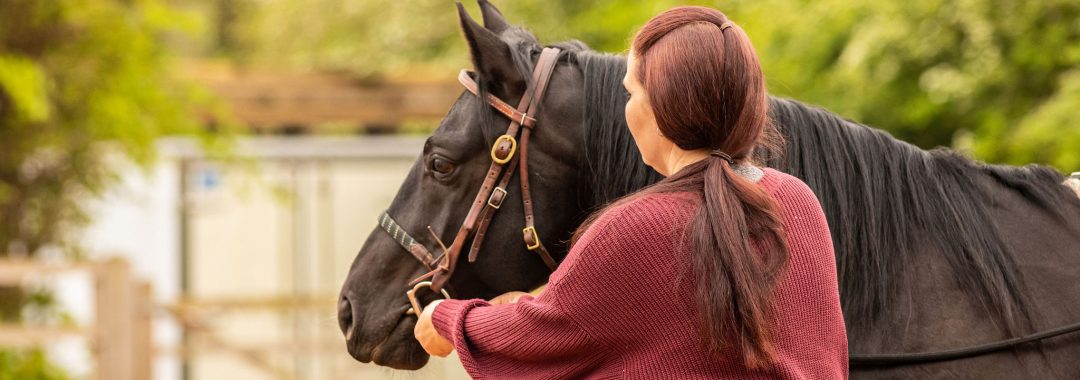‘The Basics’…if we can get those down then we’re flying right? Yes, you bet you’re right! However sadly, they are often overlooked, ignored, and downplayed, because of their simplicity, often, to our own, and our horse’s detriment.
So which basics am I talking about exactly?
Your basic NEEDS.
The things you need to get you through each day, and to keep you bright and breezy while you’re at it! And, equally as important of course, we’ll be talking about your horses’ basic needs too.
If these needs are not met, in a consistent way, not only will it potentially break down the next session you have with your horse, it can break down your whole relationship. You see, they’re kind of a big deal, and again, often COMPLETELY disregarded.
When things go wrong, or aren’t heading in the way we would like, we often find ourselves grappling around, frustrated, and looking for what we did wrong. We seek out how to do things better, and desperately search for the answers, when actually, there’s so many of them in the tiny everyday things we do….or don’t do!
So, let’s start off with you, the human. What are your basic needs? Where did this idea even come from?
Well, according to human psychologist Abraham Maslow’s popular theory, we all function according to a ‘Hierarchy of Needs’, which is often depicted in pyramid form.
At the bottom of the pyramid, are our most basic of needs, that we need in order to SURVIVE.
These include sleep, food, water, safety (I.e., we are not stressed or in fight/flight).
Further up the pyramid, our needs include friendship, socialising, feeling accomplished, meetings goals, and ultimately (at the top) achieving our full potential, and feeling fulfilled, and happy in life.
So, the bottom line (quite literally) is, if we want to meet our needs further up the pyramid, to feel fulfilled, happy, and like we are meeting our goals in life and with our horses, we MUST meet our needs at the foundation of the pyramid.
Now that leads me to ask, how often have you turned up to a session with your horse feeling tired? Hungry/thirsty? Over caffeinated, highly sugared, and under nourished? Stressed from the day?
How have those sessions gone? Did you meet your full potential? Could you communicate with your horse with clarity and calm? Could you think clearly? Did you get frustrated easily? Could you physically execute what you needed to, to the best of your ability?
My guess? Probably not. The crazy thing is, this can all be SO easily rectified, and just by making a few small changes in your life, you can achieve so much more, with your horse, and beyond.
By just making sure you are properly hydrated for a start, you can change your WHOLE day.
You’re probably reading this thinking you don’t have time to meet those needs.
Us horse people are a busy lot, we often run on empty, survive on a cup of tea/coffee and a biscuit, and assume we can just crack on with our day, whizzing from one thing to the next, trying to tick things off the list, look after the other humans and animals in our life, and definitely not having time to look after ourselves properly in the process.
Well, I’m here to tell you that you do have time. And you MUST make the time for you. You only get one life, and you only get one body, and in order to do all the things you need to, and meet all those goals you want to, you MUST look after yourself. Put your own damn oxygen mask on first. You cannot pour from an empty cup! Think of all the things you could do and achieve (and how different it would feel) if you could give from a cup of overflow….?!
Now look, it doesn’t have to be anything drastic, I’m not talking about a buffet at breakfast, or yoga in your lunch hour, but particularly when we’re relating it to working with your horse, start with asking yourself the following questions before you start a session.
Am I well rested? Am I hydrated/fed? Do I feel calm?
If not, it’s time to address those before you start. Drink a glass of water, pack a sandwich, have a power nap, or chuck on a 5-10 min meditation (these are so easy to access nowadays for free from everywhere). Plan your day so you KNOW you can meet those needs. Then see how different you feel. I guarantee you, it’ll improve your day, and improve your time with your horse.
The small things really do all add up to the big things. So, look after those basic needs, and they’ll look after you, and your horse!
Your Horses Basic Needs
Of course, there are two players in any partnership, and your horses’ basic needs are just as important as yours.
Their pyramid looks very similar to yours, at the foundation, you have their needs for survival, food, water, and sleep.
But this is where things get a little more complicated. Horses’ lives are very different now they are domesticated, we have humanized them, regimented them, and taken away a lot of their ‘natural’ ways of being. It’s also important to remember, that as prey animals, they also have a few key things that need to be considered, in order to feel SAFE and therefore happy and stress free in their lives with us.
So how can we tweak things to improve their lifestyle, and therefore our relationships with them?
Hydration is easy, we all know the old ‘provide clean, fresh water at all times’ from our pony club days.
Sleep? This is an interesting one. We all know horses can rest and sleep standing up, but does your horse feel relaxed enough to lay down and get their nourishing REM sleep for at least 30 minutes a day? If not, that may be something to look at. How can you help your horse to feel ‘safer’ and more comfortable so that they can achieve that? Just like us, not getting enough real rest and sleep can lead to edginess, stress, anxiety, and of course, tiredness!
Food. Nutrition and hard feed wise, this all depends on the level of work your horse is in, their breeding, and their genetics, so it is important here that you consult a nutritionist to ensure you are not over/under feeding them the hard stuff, which can result in changes of energy, weight, and other behavioral/physiological problems relating to diet. One easy thing though…is levels of forage. Horses in their natural environments wander for miles, every day, foraging and eating roughage, which helps keep their digestive system functioning and healthy, and keeps them MOVING and happy. Providing ad lib forage and turnout, is the easiest way to meet this need.
Restricting movement, and forage however, is not conducive to a happy, truly healthy horse, and restricting their freedom ‘to be a horse’ in this way, can affect their personality, health, and behavior exponentially. As prey and herd animals, horses were built to roam, and move. Stabling our horses for the majority of their day and their lives can be stressful to our furry friends, leading to habits such as weaving, cribbing, door kicking, box walking, over exuberance/lack of focus in work, and general ‘grumpiness’.
Where possible (because I know sometimes it can be difficult depending on your yard etc) turnout as much as possible (particularly 24/7) can improve your horse’s happiness and wellbeing tenfold.
This leads nicely into the next thing that is essential to your horse’s happiness…friends! As herd animals, who depend on each other for their very survival, living life without being able to properly socialise (inc. activities like playing and grooming each other), can greatly affect your horse’s happiness and well-being, and also the way they interreact with you!
Without learning social cues from other horses from a young age, you may find that your horse does not exhibit ‘normal’ behavior as they have not learnt how to ‘be’ around other beings. Not only that, horses who are restricted from socialising in their every day life, will often feel frustrated and stressed, and this may show internally in introverted horses (think stomach ulcers, being ‘shut down’ etc) and/or externally in ‘vices’ as described above.
Bearing all of the above in mind when assessing your horses lifestyle can be SO profound in the positive changes it can bring to you and your horse. A few small tweaks can make SUCH a huge difference. Again, these small changes may feel like nothing in the grand scheme of things, but they really are the foundations in which your relationship with your horse is built on. Do not underestimate them!
So what else?
Aside from those very basic needs, if you are questioning whether you horse is feeling ‘fulfilled’ or meeting their full, real life unicorn potential, here are some other questions you can ask, or things you can look into.
BASIC NEEDS – food/diet, forage, friends, freedom, sleep
PHYSIOLOGICAL- are they physically sound/well? Reg farrier, physio apps? Dentist? Gelding- is there sheath clean and free of the dreaded ‘bean’, reg worming prog? Digestion ok? Signs of stomach ulcers?
MENTAL – are they coping with their workload? Does their training regime need to slow down or step up? Does their routine need changing? Do they need more/less variety?
TACK/EQUIPMENT – does all of their tack fit correctly? Is all of your equipment sound and in good condition? Do you need to change bits or try without?
Again, small tweaks here and there, or further investigation into some of the factors above can make a HUGE difference to your horses well-being.
To conclude, bearing in mind your basic needs, and that of your horse, can add a crazy amount of enrichment to your relationship, and to both of your lives. The simple things in life, are often the most profound, and in this case, they are the living foundation in which your lives as you know them, sit.
So make them count.



